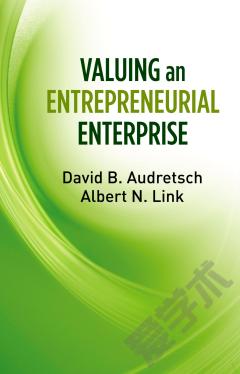Valuing the Closely Held Firm
A closely held firm is not a smaller version of a large public firm, anymore than a child is a miniature adult. While realizing that like large corporations, value comes from a business's ability to generate future cash flows, Long and Bryant emphasize the differences between the two. The primary question is does a separate entity exist or is the business just an extension of its principal owner or manager? If yes, how does this business vary from a large publicly traded firm with market and not management control? This book gets to the fundamental differences between the two and the adjustments made to correctly value. It avoids the traditional multiples of earnings or multiple of sales and other cookie-cutter approaches, to focus on the basic ability to create value. The book also avoids specifics in tax laws as they change and vary between countries. While providing a conceptual process, Valuing the Closely Held Firm provides numerous examples to lead the reader to understand the concepts.
{{comment.content}}








 京公网安备 11010802027623号
京公网安备 11010802027623号